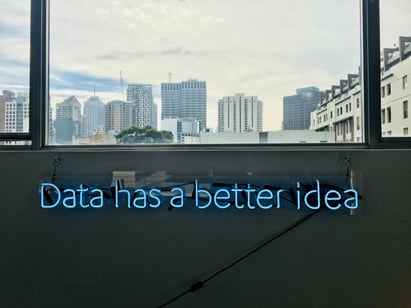Since the inception of RecycleSmart, when the first bin was serviced and the first ton of waste diverted from landfill, we have created data. Over the years that data has either been saved, stored and utilized or sometimes lost. For those who have saved it, use it! For those who have not, here is why better data can help you make better recycling decisions.
When you hear the word Big Data do you really know what it means? Here is a handy definition to amaze your friends with: Big Data means: to computationally analyze data to reveal patterns and trends relating to our behaviour. With recycling data we have created a by-product of our behaviour and we can discover a path forward by analyzing those trends and patterns. Using raw materials costs lots of money, consumes energy and creates waste, but what people don't recognize is that it costs quite a bit to dispose of those products when they are at the end of their useful life. Why not innovate and optimize your waste and recycling programs to reduce that cost as well? Optimize inflow, optimize outflow.
Making informed decisions for your waste diversion will reduce time, cost and waste. Through analyzing your data you'll be able to recognize inefficiencies whether that be through product sourcing and manufacturing or waste sortation. A great place to get started is with the RecycleSmart waste diversion portal - setup a demo today to learn more about how our portal gives you the data you need to make Smart Recycling decisions!
What is the best decision you can make?.. A Zero-Waste System, or for those statisticians reading, as close to zero as possible (plus or minus 5%). Businesses across North America have already made this shift and the people are loving it, not to mention the planet.

Here are some of the amazing things data is driving in the waste and recycling world.
- AI - Enhanced Recycling Robots
- Saving humans the hassle and harm of sorting through recyclable material - Optimizing the recycling of used vehicles
- Helping maximizing the use of vehicle parts and payouts to the previous owners - Reducing the use for landfills
Enabling cities to utilize more space for commercial or industrial real-estate.
Creating jobs, paying salaries and ultimately generating more taxes contributing to the economy - Using Satellites for identifying patterns in the oceans
Patterns for the routes of ships and where ocean waste gathers - Fullness Monitoring
Utilizing an IoT device to monitor your waste and recycling bins fullness, reducing the number of times it is serviced for when it's required

.png?width=371&height=500&name=Untitled%20design%20(12).png)
